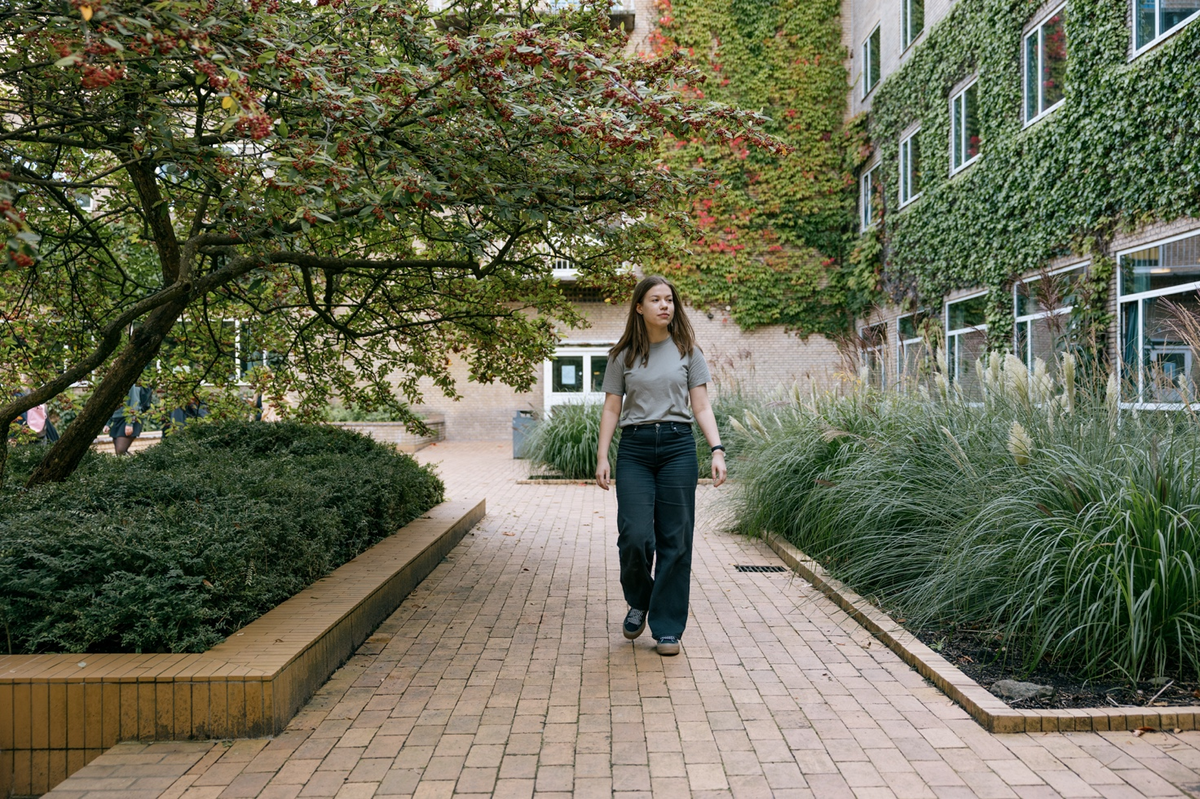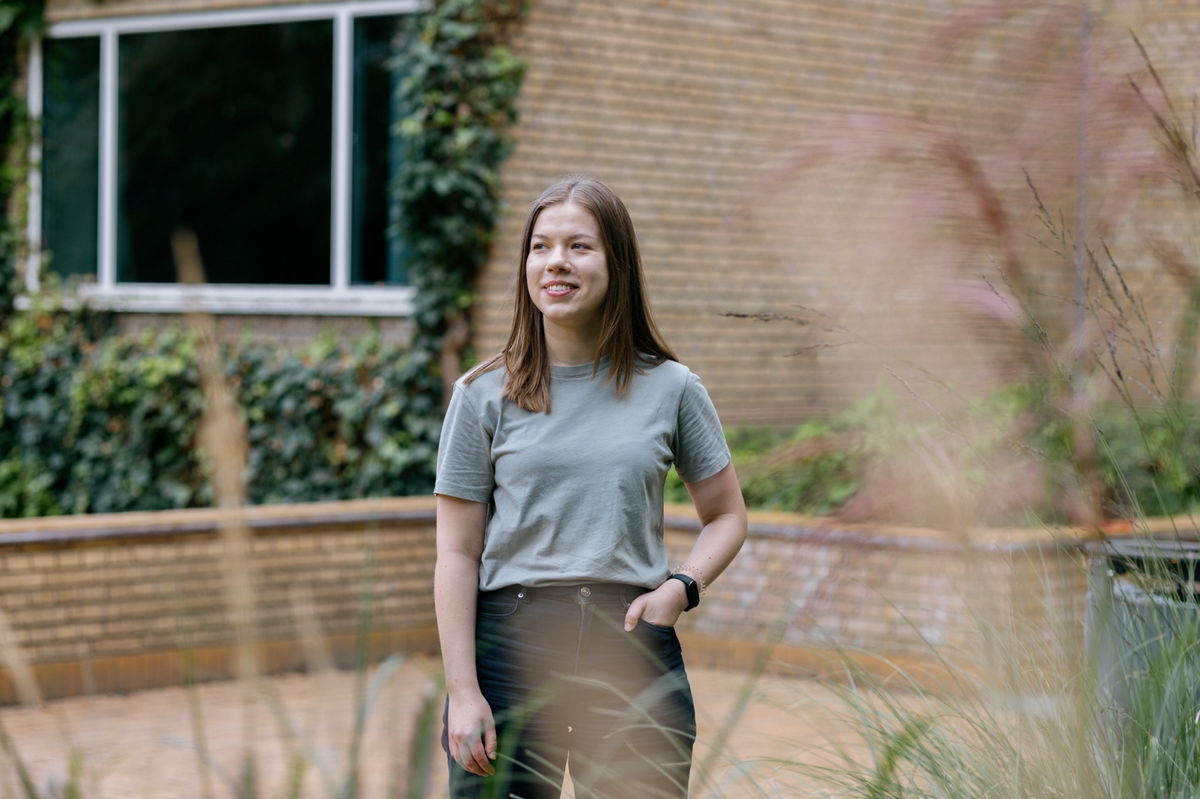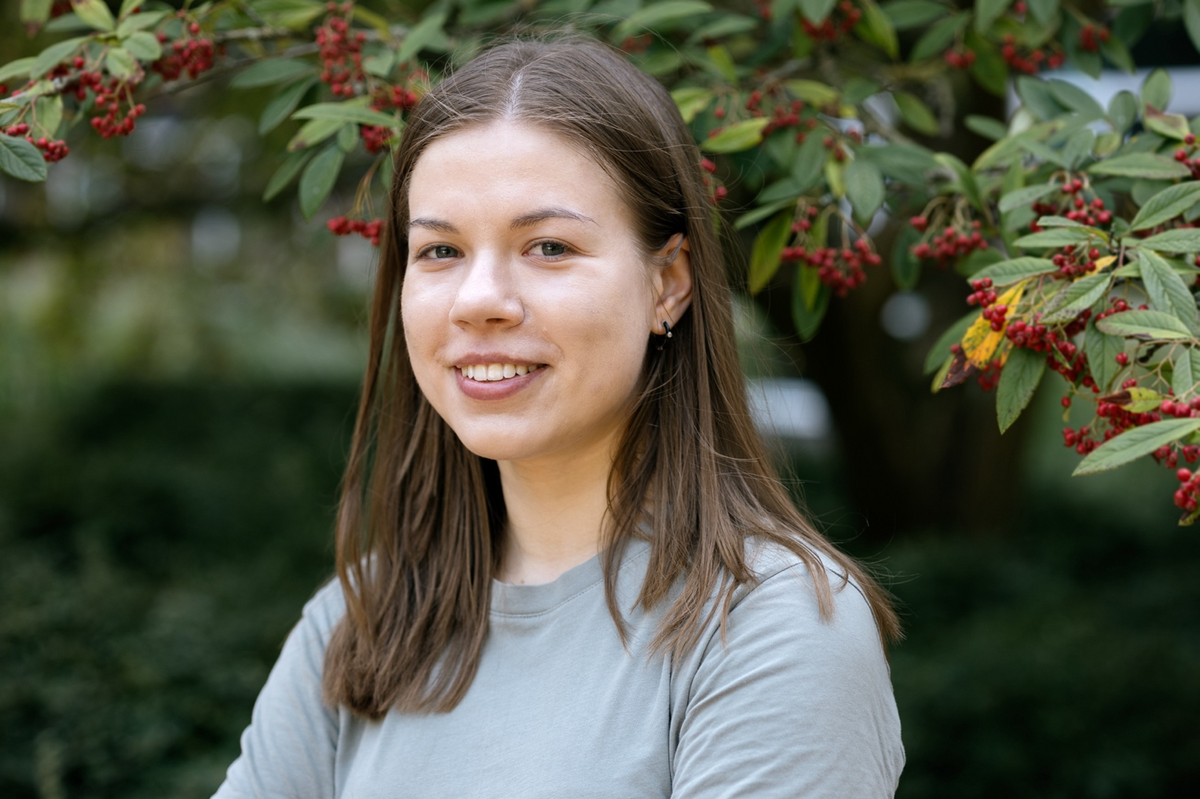
Anastasia has always been captivated by mathematics and wanted to combine this passion with programming. This interest led her to specialise in machine learning during her bachelor’s studies. Reflecting on her choice, she notes, “I’ve always had a keen interest in math from my school days, and I also wanted to explore programming. I chose machine learning because it seemed incredibly intriguing to me.”
She completed her bachelor’s degree at the Higher School of Economics in Moscow but found that the educational approach in Denmark offered a different experience. At Aarhus University, for instance, a typical semester consists of only three major courses, which Anastasia appreciated: “I liked that we only had three subjects at once. It allowed me to focus more deeply and engage more thoroughly with each course.”
Another notable aspect of the Data Science programme at Aarhus University is its emphasis on group work. Anastasia found this particularly beneficial, both during her studies and in her professional life. “Group projects were a lot of fun. They’re a great way to organise your studies, especially since working in teams is a common aspect of real-world jobs.”
Today, Anastasia works as a Data Scientist at Lind Capital in Aarhus, where her role includes data engineering and analysis, together with other various tasks. Her transition into the full-time position was made smooth by her prior experience as a student worker at the company. Reflecting on her current role, Anastasia appreciates the dynamics of her team. She notes, “My day involves working on tasks prioritized by the team and distributing tasks based on our specialties and interests. There are six people in the tech team, including data scientists, engineers, and platform specialists. In a smaller team, you get a diversity of tasks, but in a larger team, tasks might be more specialized.”
The relatively small size of the team allows Anastasia to be involved in various processes, offering a broader range of experiences compared to a larger team where tasks might be more narrowly defined.
Much of what Anastasia learned during her studies is directly applicable to her daily work, although some new areas have required additional learning on the job. “Some of what I learned in my data science master’s is definitely applicable, especially for analytical tasks. However, tasks like building Docker containers were new to me, and I learned that on the job.” This blend of applying existing knowledge and acquiring new skills is a common experience for many recent graduates and new employees, but for Anastasia and other data scientists, this is not an issue because they graduate with a broad and extensive expertise in their field.

One concern that many international students have before they arrive is where they will live and how to find accommodation before their arrival. At AU, we have a department that assists international students with finding housing. It is called AU Housing. They hold online seminars about housing each semester and provide a wealth of useful guides on their website – and you can always contact them with questions:
In Anastasia’s case she gained seniority and was able to live very centrally in a hall of residence she liked. Halls of residence offer a great opportunity to build a social network and make friends during your studies, as they often host various social events such as Friday bars, parties, and clubs. Additionally, halls frequently have common rooms and communal dining areas where you can meet other students.
Anastasia made many of her friends through her studies, where numerous social events are also organised: “I met my classmates - I’m not sure when - I think there was like an introduction to the master’s programs and then we went to the “Danmarks største fredagsbar” (a huge social event with music and games). I was also introduced to Friday bars at the Department, so I went to socialize with them there, too. […] My classmates have made an effort to make me feel welcome[…] when I didn’t spoke any Danish in the beginning, they spoke English so I could participate in conversations."
Anastasia has always appreciated – and continues to enjoy – the nature, the size of Aarhus, and the sense of safety it offers. She reflects, “The air smells of the sea… you forget how nice it is to actually smell the sea every day. I really like how green it is here, with botanical gardens, the sea, and parks nearby. In Moscow, you have to rely on crowded public transport, which isn’t pleasant. In Aarhus, I bike everywhere and feel much safer.”
However, Anastasia also acknowledges, the challenges of living in a foreign country. Visiting family back home isn’t always easy, and she has had to learn to seek advice from friends and colleagues on various issues. She explains: “Life can be challenging at times. A lot of my personal struggles stem from being away from my family, who would otherwise be there to support me. In the beginning, it felt weird to ask strangers for advice and help. However, I’ve really appreciated how friendly and helpful Danish people are. Everyone I’ve met has been warm and supportive. When I tell my friends back home about how my colleagues assisted me during my move, they’re impressed and say, ‘Wow, you have such sweet colleagues.’ It’s clear that friendliness is a key aspect of the culture here.”

Anastasia has some valuable advice for those considering studying Data Science as an international student:
“I would recommend signing up for student jobs. It’s not just about the money; it’s also a chance to experience the working culture, which can vary from place to place and country to country. Additionally, we had organised events like summer parties, sports days, and Christmas parties. Participating in these events is a great way to meet people and have fun.”